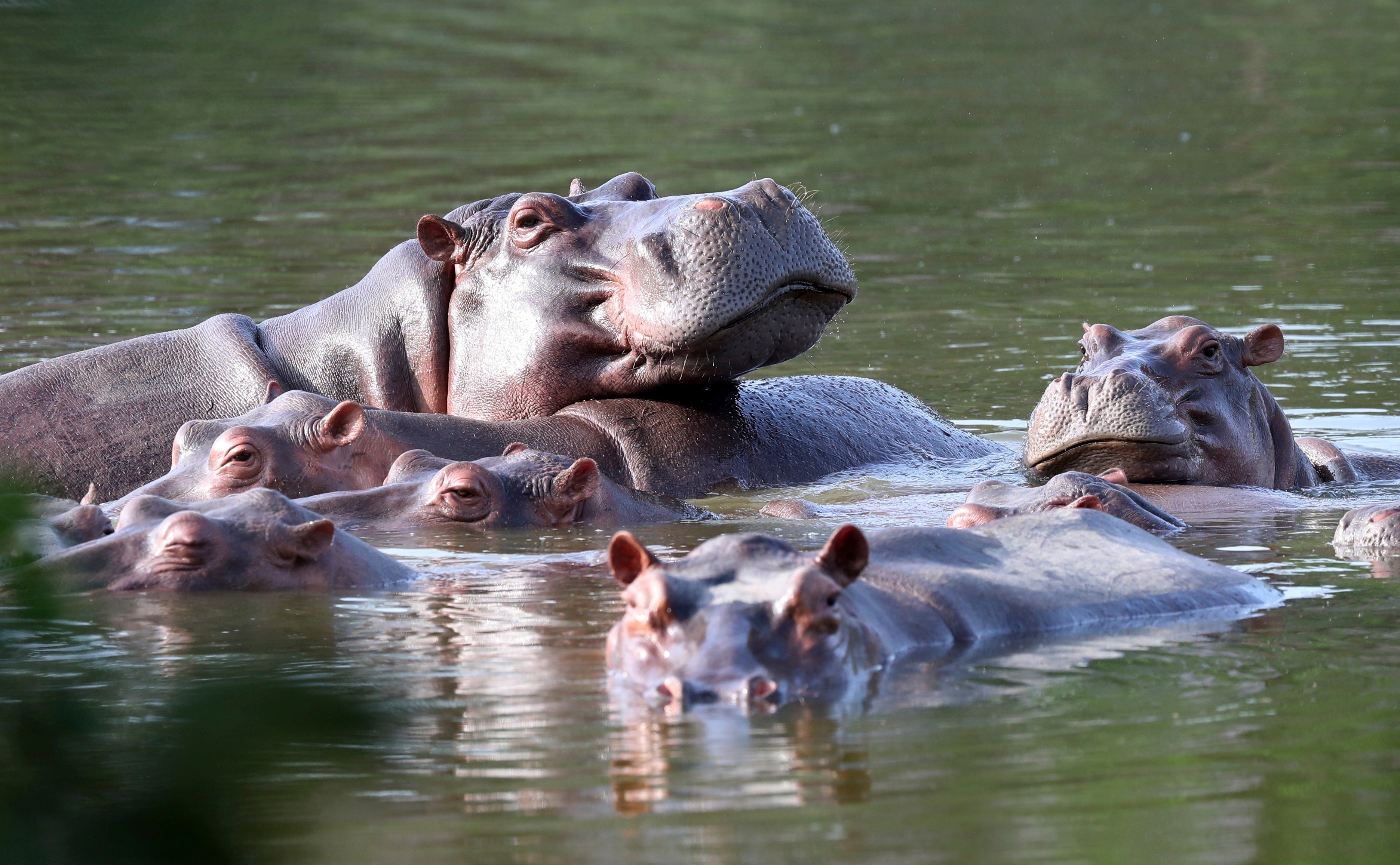Colombia proposes shipping invasive hippos to India, Mexico
Colombia is proposing transferring at least 70 hippopotamuses that live near Pablo Escobar’s former ranch _ descendants of four imported from Africa illegally by the late drug lord in the 1980s – to India and Mexico as part of a plan to control their population

Colombia is proposing transferring at least 70 hippopotamuses that live near Pablo Escobar’s former ranch — descendants of four imported from Africa illegally by the late drug lord in the 1980s – to India and Mexico as part of a plan to control their population.
The hippos, which are territorial and weigh up to 3 tons, have spread far beyond the Hacienda Nápoles ranch, located 200 kilometers from Bogotá along the Magdalena River. Environmental authorities estimate there are about 130 hippos in the area in Antioquia province and their population could reach 400 in eight years.
Escobar’s Hacienda Nápoles — and the hippos — have become a sort of local tourist attraction in the years since the kingpin was killed by police in 1993. When his ranch was abandoned, the hippos survived and reproduced in local rivers and favorable climatic conditions.
Scientists warn the hippos do not have a natural predator in Colombia and are a potential problem for biodiversity since their feces change the composition of the rivers and could impact the habitat of manatees and capybaras. Last year, Colombia’s government declared them a toxic invasive species.
The plan to take them to India and Mexico has been forming for more than a year, said Lina Marcela de los Ríos Morales, director of animal protection and welfare at Antioquia’s environment ministry.
The hippos would be lured with food into large, iron containers and transferred by truck to the international airport in the city of Rionegro, 150 kilometers away. From there, they would be flown to India and Mexico, where there are sanctuaries and zoos capable of taking in and caring for the animals.
“It is possible to do, we already have experience relocating hippos in zoos nationwide,” said David Echeverri López, a spokesman for Cornare, the local environmental authority that would be in charge of the relocations.
The plan is to send 60 hippos to the Greens Zoological Rescue & Rehabilitation Kingdom in Gujarat, India, which De los Ríos Morales said would cover the cost of the containers and airlift. Another 10 hippos would go to zoos and sanctuaries in Mexico such as the Ostok, located in Sinaloa.
“We work with Ernesto Zazueta, who is the president of sanctuaries and zoos in Mexico, who is the one who liaisons with different countries and manage their rescues,” said the official.
The plan is to focus on the hippos living in the rivers surrounding the Hacienda Napoles ranch, not the ones inside the ranch because they are in a controlled environment and don’t threaten the local ecosystem.
The relocations would help control the hippo population, and though the animals’ native habitat is Africa, it is more humane than the alternate proposal of exterminating them as an invasive species, said De los Ríos Morales.
Ecuador, the Philippines and Botswana have also expressed their willingness to relocated Colombian hippos to their countries, according to the Antioquia Governor’s Office.